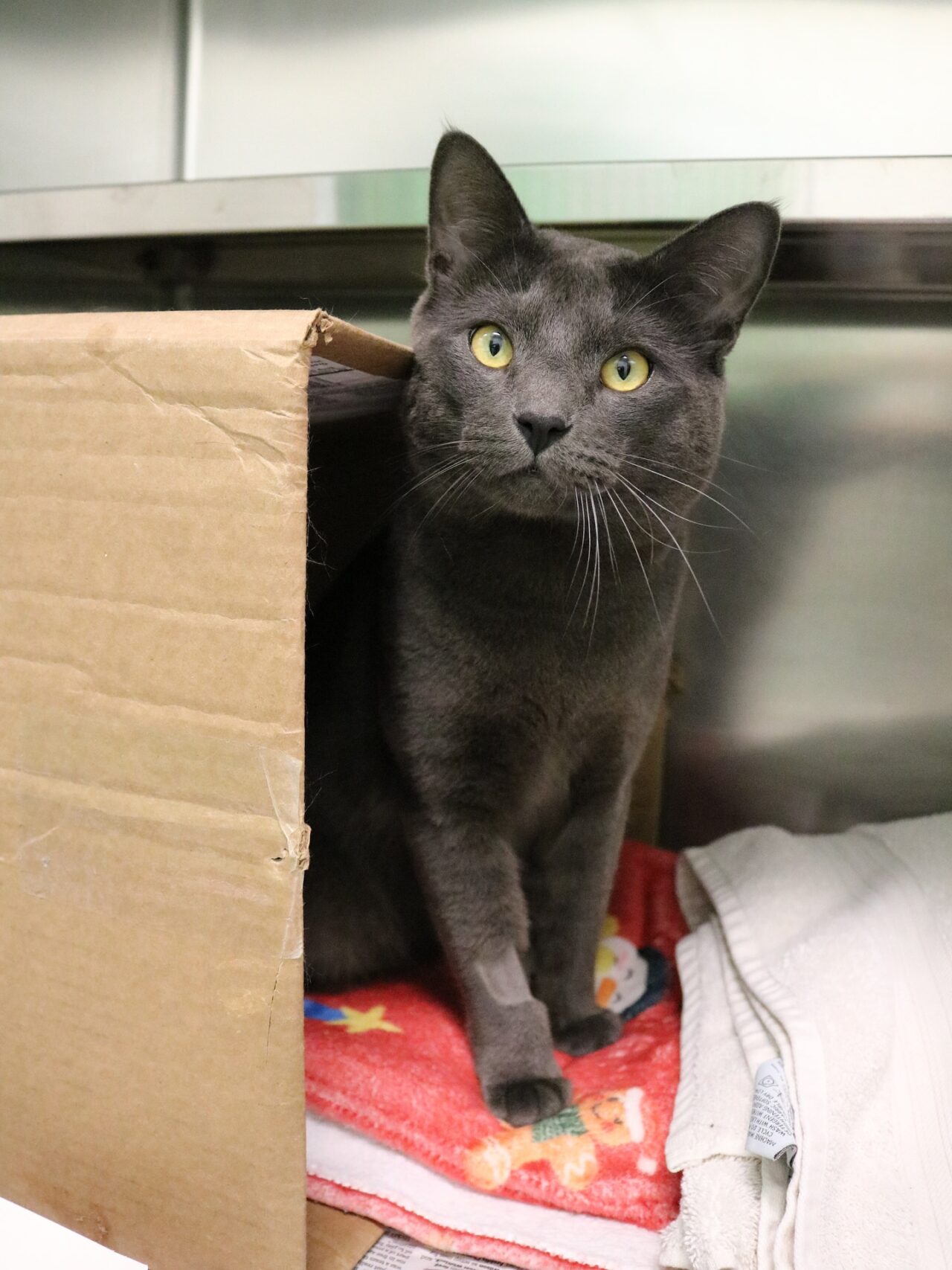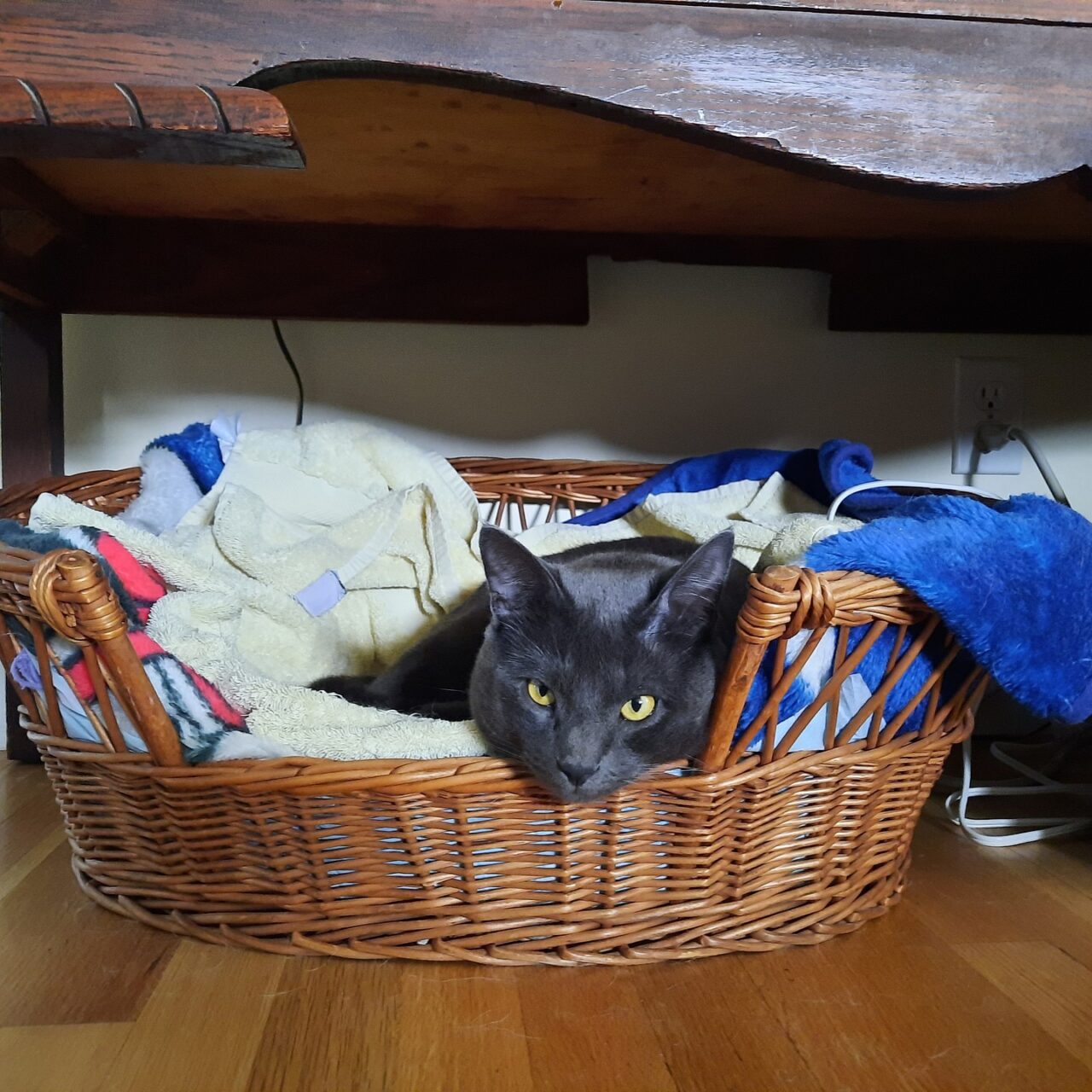📖 Table of Content:
In a quiet Cambridge neighborhood in Massachusetts, the small grey cat named Sage nearly suffered in silence. For some time, his meows and cries went unheard, lost in the daily hustle of apartment life.
That changed on July 15, 2025, when an anonymous tip reached Cambridge Animal Control, alleging that a cat was being abused behind an apartment building. Thanks to that courageous step, Sage’s fate took a sharp turn toward hope.
The Massachusetts Society for the Prevention of Cruelty to Animals (MSPCA-Angell) was quickly brought in, collaborating with Cambridge law enforcement to investigate the claims. What they discovered was shocking.
Video evidence — not released publicly — appeared to show Sage being severely mistreated: swinging by the tail, slammed multiple times onto concrete, and possibly falling from an upper floor. The suspect, identified as 26-year-old Jaydan Depina, was later arrested on two counts of animal cruelty.
Immediate action followed. Sage was surrendered into MSPCA custody and rushed into veterinary care for what turned out to be severe physical injuries. He had lung contusions, a broken tail, and fractures to his ribs and feet. Some of those injuries appeared to be older, suggesting the abuse had been going on for some time. He also bore signs of malnourishment and neglect.
From Trauma to Healing: Sage’s Road to Recovery
When Sage arrived at MSPCA-Angell’s Boston Adoption Center Clinic, his physical condition was dire. But perhaps even more devastating was his spirit. Shelter staff described him as “shy and shut down,” emotionally wounded and cautious of human interaction. He recoiled from gestured attention, likely because pain, fear, or both had taught him to expect the worst.
Yet with veterinary care, compassion, and a secure environment, Sage began to show signs of change. He was treated for his broken tail and lung bruises, fractures were tended, and regular check-ups followed.
Dealing with old wounds and behavior caused by trauma takes patience, but over time, staff saw small but meaningful improvements. He began to show trust: leaning into gentle touches, warming up to familiar caretakers, and gradually becoming more social.
On July 31, 2025, just days after he was cleared for adoption, Sage found a forever home. It was a moment cheered by everyone at MSPCA-Angell, a silver lining after so much heartbreak. For those who had cared for him through his worst days, it was proof that healing—even from severe abuse—is possible.
Justice Served and a Bittersweet Reminder
Meanwhile, the legal process moved forward. The investigation had fortified enough evidence for charges, and Jaydan Depina was arraigned on two counts of animal cruelty in Cambridge District Court. The law enforcement work involved MSPCA’s Law Enforcement Division, Cambridge Animal Control, and the police. The public tip was instrumental. Without it, the abuse may never have been discovered in time.
The case also stirred renewed conversations in Massachusetts about animal cruelty laws and how they intersect with public safety. MSPCA-Angell leaders emphasized that abuse toward animals is often a red flag for broader issues and should be treated with seriousness. They also noted the importance of community vigilance: people reporting odd or suspicious behavior can save lives.
A Chance to Thrive
Today, Sage is many things: survivor, beloved pet, symbol of hope, and the lucky recipient of second chances. His forever home is already making sure he gets what he needs—gentle handling, medical attention, and love that affirms his worth. MSPCA-Angell describes his adoption as “the silver lining we needed.”
There are still scars—physical and emotional—that Sage carries, and loud noises can make him flinch. But day by day, his new family and the shelter staff see more of the cat he might have become: playful, affectionate, aware of his surroundings in a way that’s no longer just defensive. He’s no longer just surviving; he’s beginning to thrive.
Sage’s journey teaches that justice and healing are possible even in the face of cruelty. An anonymous tip, courage from people who saw and acted, and a team willing to step in—all combined to save a life. It reminds us that if we pay attention, speak up, and support rescue organizations, we can make a difference.
It also highlights how important it is for shelters to be equipped not only to handle physical injury, but emotional trauma, too. Cats like Sage need more than medicine—they need time, patience, safety, and love. And for adopters: the reward of seeing trust gradually rebuilt is profound.
Most of all, Sage’s story is a hopeful one. Because of people who cared, because of systems that responded, and because a home opened for him just when he was ready, he has a future. That future is no longer defined by pain, but by potential.


